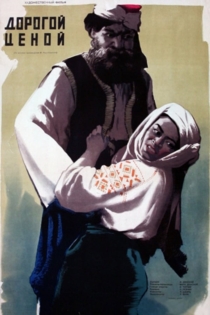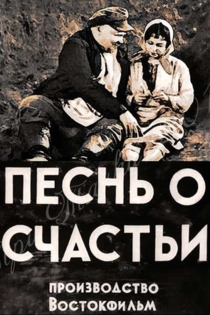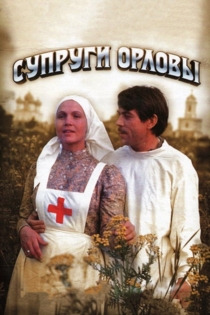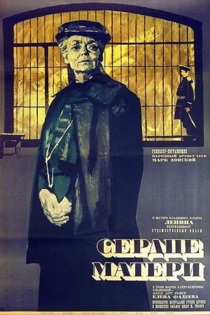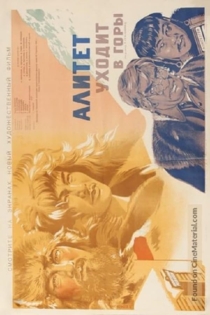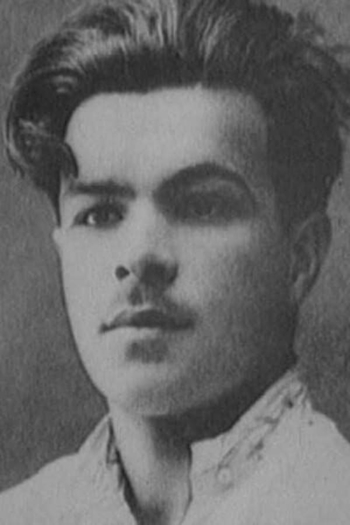
Mark Donskoy
2021Детство Горького
Mark Donskoy
Aleksei Lyarsky, Varvara Massalitinova
Young Maxim grows up under the czarist regime with his grandparents as guardians. Continually demeaned by his martinet grandfather, Maxim is drawn to his warm-hearted grandmother, who instills in him the willingness to pursue his writing muse.
The Childhood of Maxim Gorky
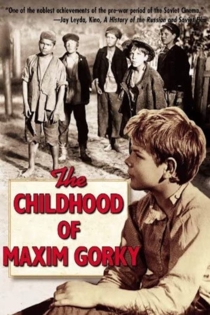
Радуга
Mark Donskoy
Nina Alisova, Natalya Uzhviy
The German conquerors are above nothing, not even the slaughter of small children, to break the spirit of their Soviet captives. Suffering more than most is Olga (Nataliya Uzhviy), a Soviet partisan who returns to the village to bear her child, only to endure the cruelest of arbitrary tortures at the hands of the Nazis. Eventually, the villagers rise up against their oppressors-but unexpectedly do not wipe them out, electing instead to force the surviving Nazis to stand trial for their atrocities in a postwar "people's court." (It is also implied that those who collaborated with the Germans will be dealt with in the same evenhanded fashion).
Rainbow
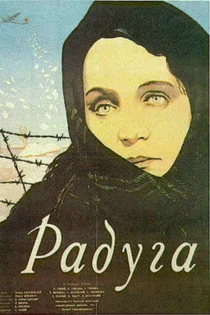
В людях
Mark Donskoy
Aleksei Lyarsky, Irina Zarubina
Second entry in Russian director Mark Donskoy's "Maxim Gorki" trilogy. Picking up where 1938's My Childhood left off, the story covers the years in Gorki's life when the future writer (Alexei Lyarsky) was on his own, looking for a purpose and place in life.
My Apprenticeship
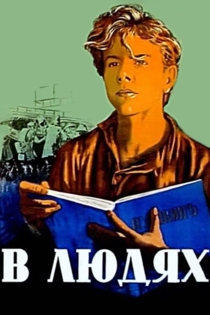
Мать
Mark Donskoy
Vera Maretskaya, Aleksey Batalov
Timid old woman Pelageya Nilovna observes the revolutionary activities of her son Pavel Vlasov and gradually comes to realize that his cause is a great and noble one. She involves herself in the movement and finds joy and great courage in her new life as a revolutionary. Based on Gorky's novel, filmed in the silent era by Pudovkin.
Mother
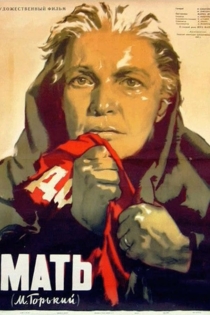
Непокоренные
Mark Donskoy
Mikhail Vysotsky, Amvrosi Buchma
Russian filmmaker Mark Donskoi, of "The Gorky Trilogy" fame, was responsible for the postwar Soviet drama The Taras Family (originally Nepokorenniye, and also released as Unvanquished and Unconquered). A semi-sequel to Donskoi's Raduga (1944), the story is set in Nazi-occupied Kiev. The drama focusses on the travails of a typical Soviet family and on the efforts by the Germans to force the reopening of a local munitions factory. The film is at its most grimly effective in a long sequence wherein the Nazis conduct a search for Jewish escapees, culminating in a horribly graphic re-creation of the slaughter of the Jews at Babi Yar. While Donskoi was critically lambasted for his cinematic "sloppyiness" during this sequence (hand-held camera, rapid cuts etc.), it can now be seen that he was attempting a realistic, documentarylike interpretation of this infamous Nazi atrocity.
The Taras Family
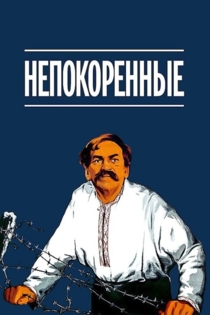
Фома Гордеев
Mark Donskoy
Georgi Yepifantsev, Sergei Lukyanov
Foma Gordeyev, the son of a wealthy Volga merchant, doesn't want to continue his father's work. The mind is sickened by the dirt and injustice of life around him. Foma is seeking solace in a drunken rampage and wild antics. After many years of desolation, he is half-ill at the opening of a night shelter built with his father’s money.
Foma Gordeyev
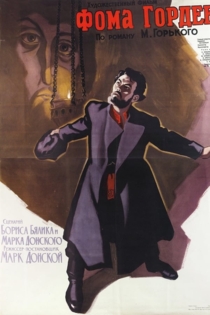
Верность матери
Mark Donskoy
Nina Menshikova, Rodion Nahapetov
Действие фильма охватывает период 1900-1917 годов. Исторические события — русско-японская война, 9-е января и другие — показаны как бы глазами матери, которая начинает убеждаться, что у её детей много единомышленников, последователей, и она, благодаря этому, приходит к мысли об осуществимости тех идеалов, которым принес себя в жертву ее старший сын. Только сознание того, что дело его не безнадежно, что оно осуществимо, близко к победе, вселяет в нее мужество, способность перенести расставания с близкими и скитания.
Верность матери
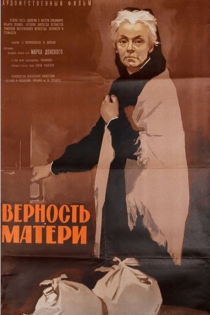
Как закалялась сталь
Mark Donskoy
Daniil Sagal, Aleksandr Khvylya
This literary adaptation was one of only two films made during World War II on the subject of the Civil War following the Bolshevik Revolution, as attention by filmmakers and viewers shifted away from past history and toward the current conflict.
How the Steel Was Tempered
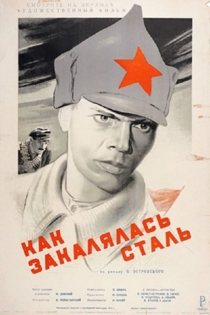
Nadezhda
Mark Donskoy
Natalya Belokhvostikova, Andrey Myagkov
The film tells about the childhood and youth of the wife, friend and military ally of the founder of the country of the Soviets Nadezhda Konstantinovna Krupskaya. The main attention in the film is paid to the participation of a young revolutionary in the organization of the struggle of the workers of St. Petersburg for their rights, against the autocracy.
Nadezhda
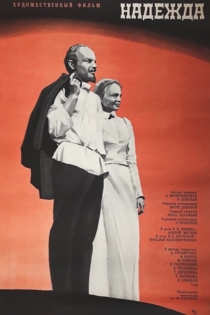
Мои университеты
Mark Donskoy
Nikolai Valbert, Stepan Kayukov
My Universities (Moi universiteti) is the last installment of Russian director Mark Donskoy's "Maxim Gorki" trilogy. Having endured a painful youth in My Childhood and a torturous sojourn as a serf in My Apprenticeship, future writer Gorki reaches maturity with an insatiable desire for personal and artistic freedom. The "university" of the title is actual the school of Hard Knocks, as Gorky goes to work in the shipyards and commisserates with the hard-drinking, philosophical dockworkers.
My Universities
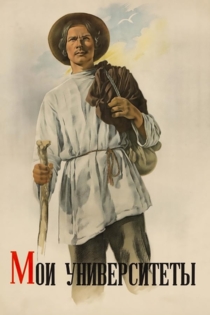
Сельская учительница
Mark Donskoy
Vera Maretskaya, Pavel Olenev
A life-long story of a romantic school teacher who left imperial St. Petersburg for teaching country children. Driven by noble intentions to enlighten people and examples by 1880s revolutionary "People's Will" member teachers, a young woman spent her life in a village and evidenced the changes a Russian village has undergone from pre-revolutionary tsarist times to late 1940s.
The Village Teacher
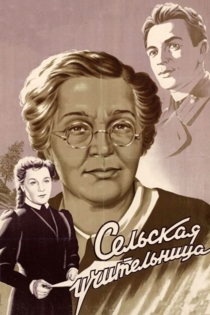
Дорогой ценой
Mark Donskoy
Vera Donskaya, Yuri Dedovich
An adaptation of a story by Mikhailo Kotsyubinsky, a Ukrainian writer executed in the Stalinist purges but rehabilitated in 1955, that anticipates the Ukrainian "poetic cinema" of the '60s in its focus on star-crossed lovers and its celebration of nature. Set in the 1830s, the film follows two lovers on the run - a girl forced into marriage and her boyfriend, a serf who's being sought by the authorities - as they try to make their way to freedom.
The Horse That Cried
